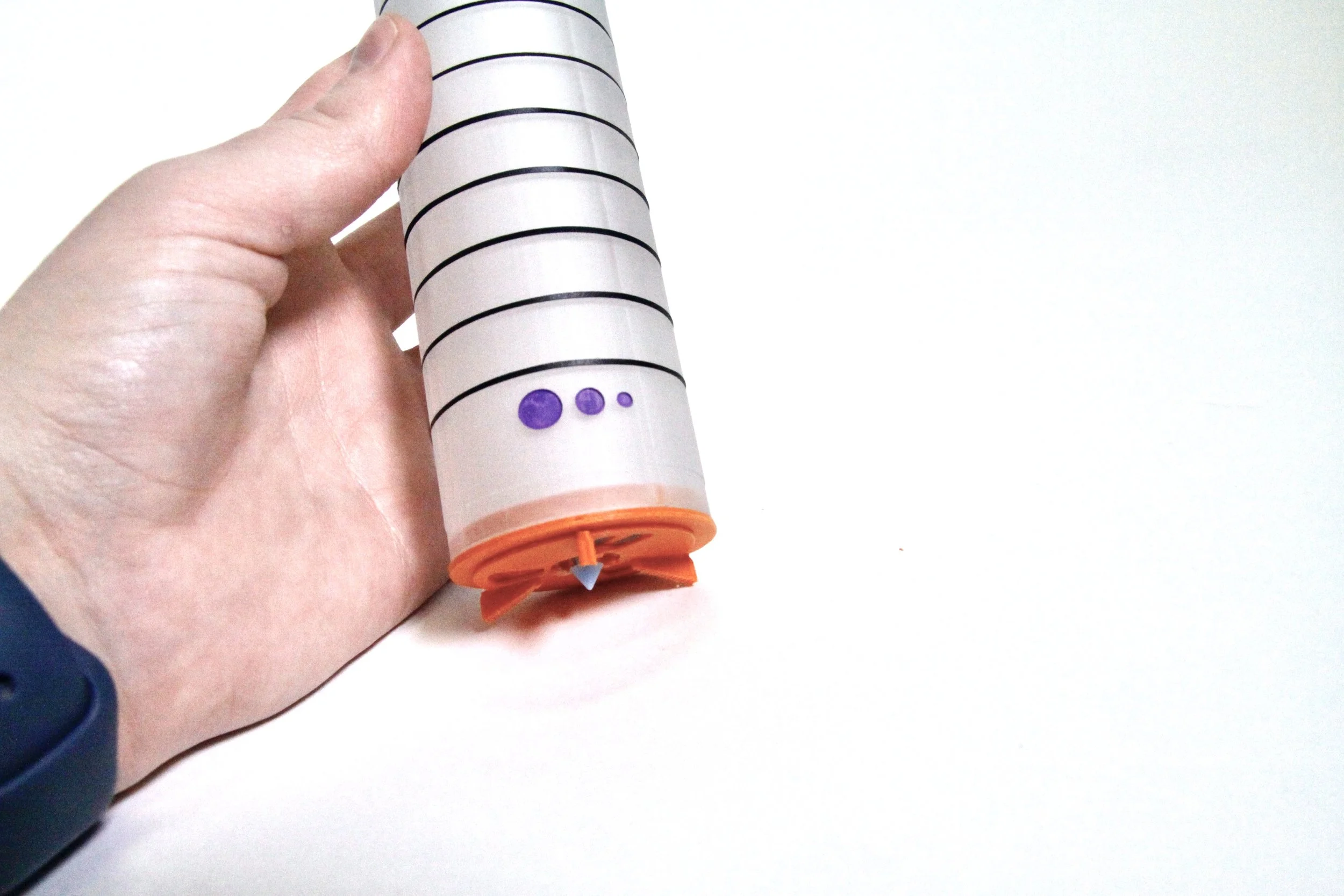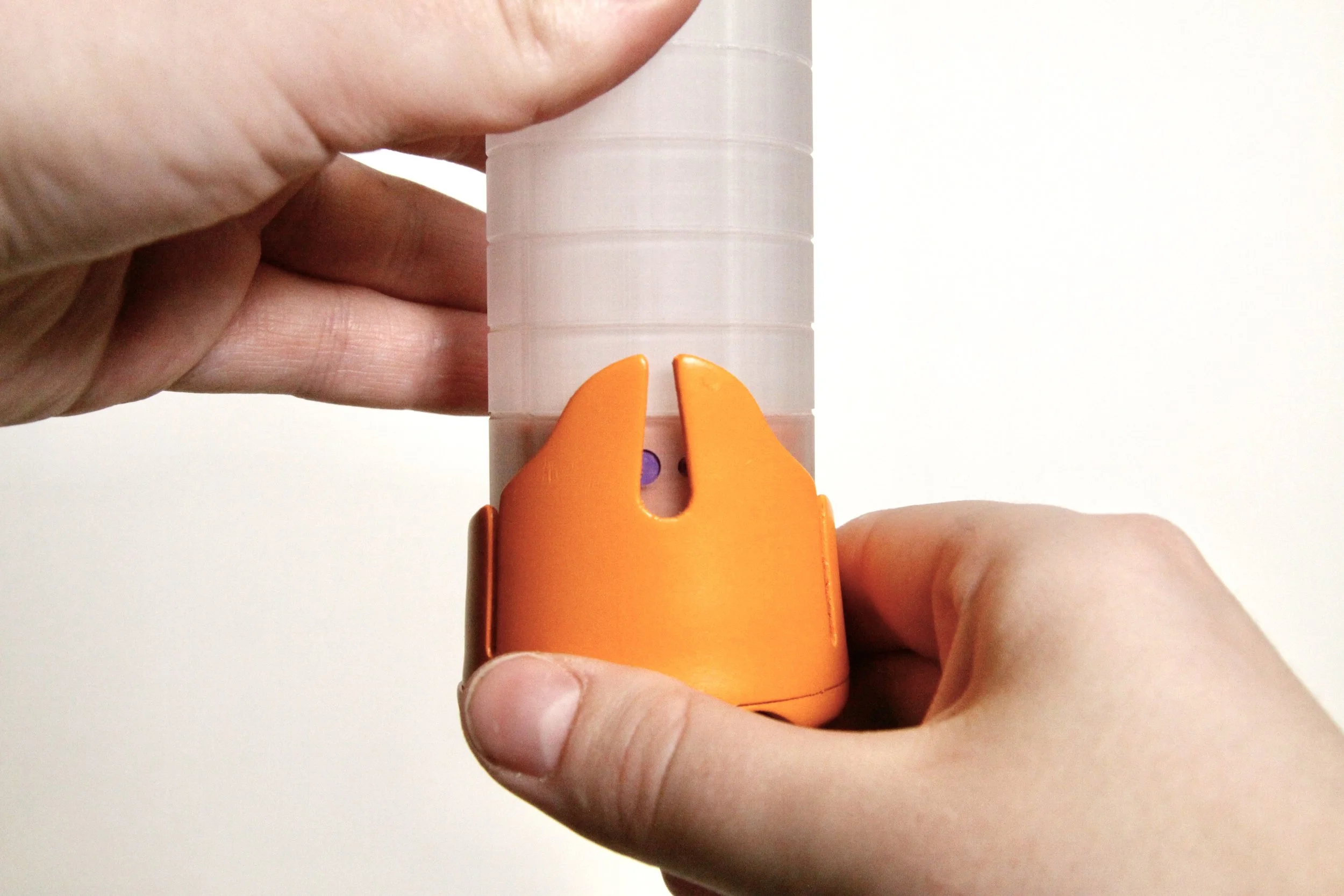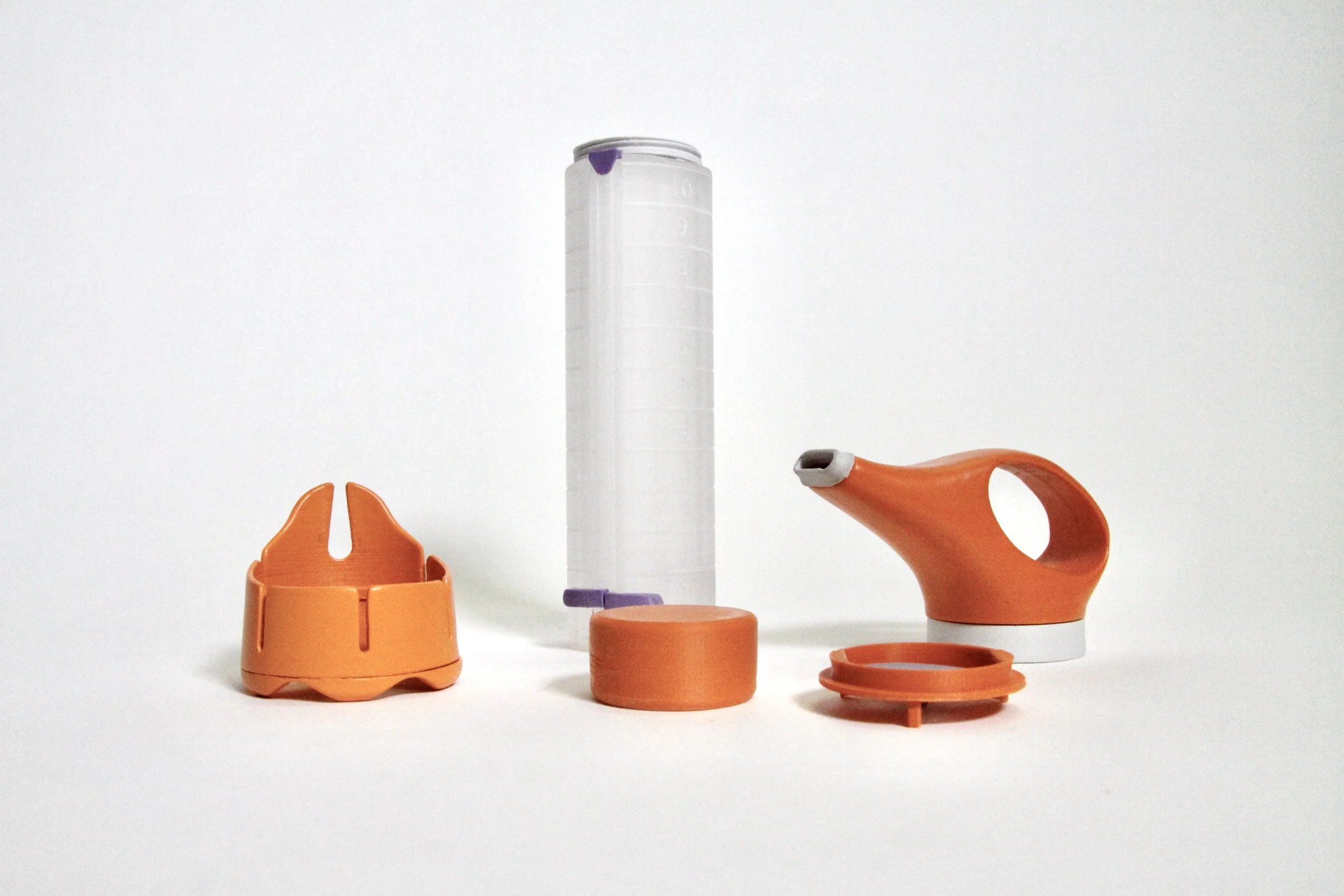An Incentive Spirometer, for inspiratory muscle training (inhaling).
Fourth-year thesis project 2021-2022
Brief: Breathii is a personal, handheld medical device that helps the user regain strength and clear the lungs after surgery or respiratory illness. The device is child-friendly, user-friendly, and a form that is comforting and approachable to users in order to encourage use and increase patient adherence.
Breathii
/breeth-ee/
ACIDO Rocket 1st Place Winner
DesignForce Market Ready Award
Integrated Display Group Outstanding Achievement Award
Use Scenario
-

User Exhales
User exhales fully without device, in preparation for the first breath.
-
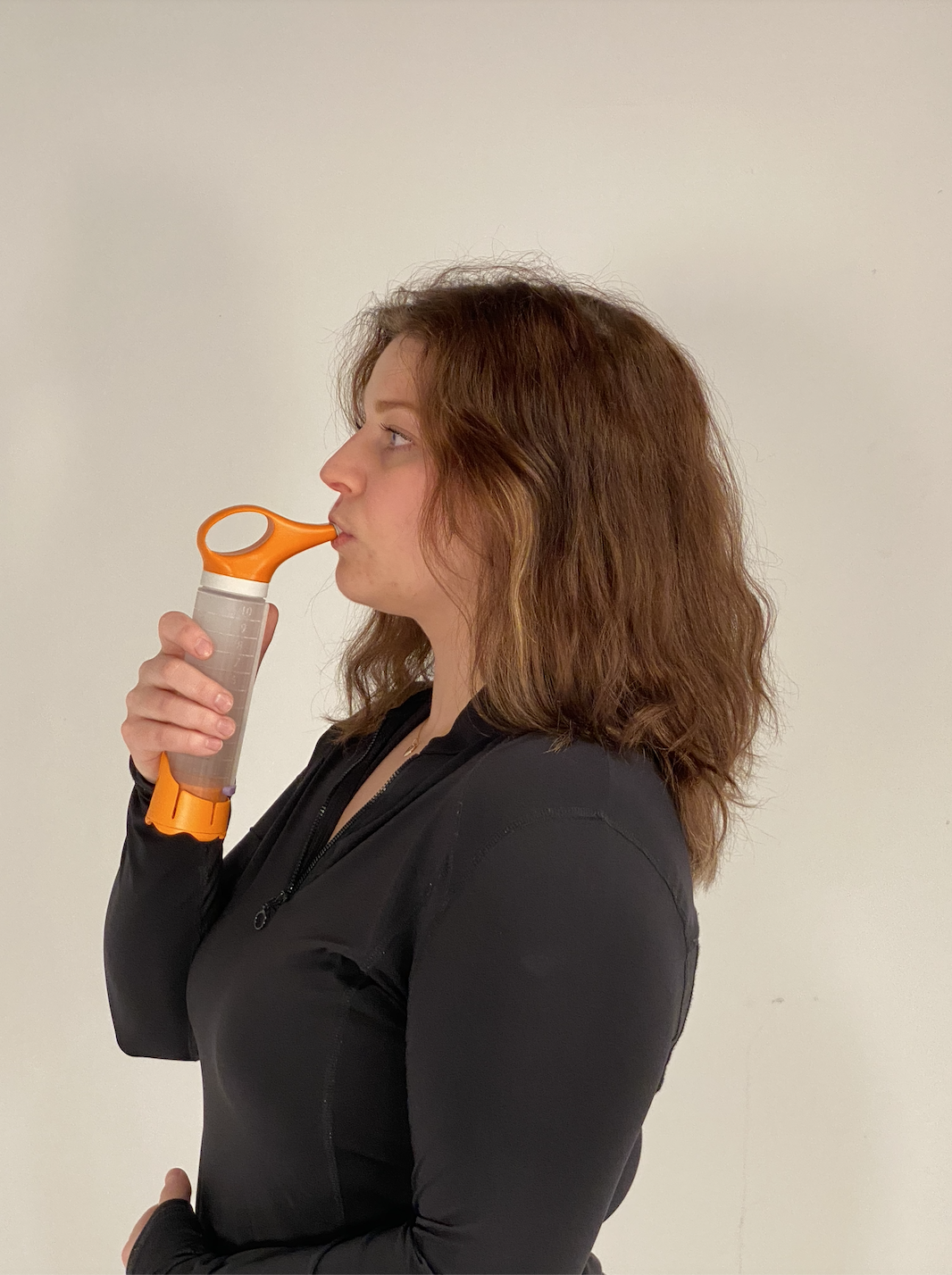
User Brings Device Up To Lips
User brings the device up to their lips
-

User Inhales Into Device
User inhales into the device, and the piston rises.
-

User Checks Level
The user can check the level they achieved, as the piston will start to move down very slowly. This gives them lots of time if their reaction time is slower due to surgery/illness.
-

User Indicates Level
User move the indicator to the level they achieved.
-

Release Piston
User pushes on the base, which lifts the inhale valve and releases the piston quickly.
-
Change Resistance
When the user achieves a level 10 on a resistance, they can increase the resistance by twisting the base counterclockwise.
-
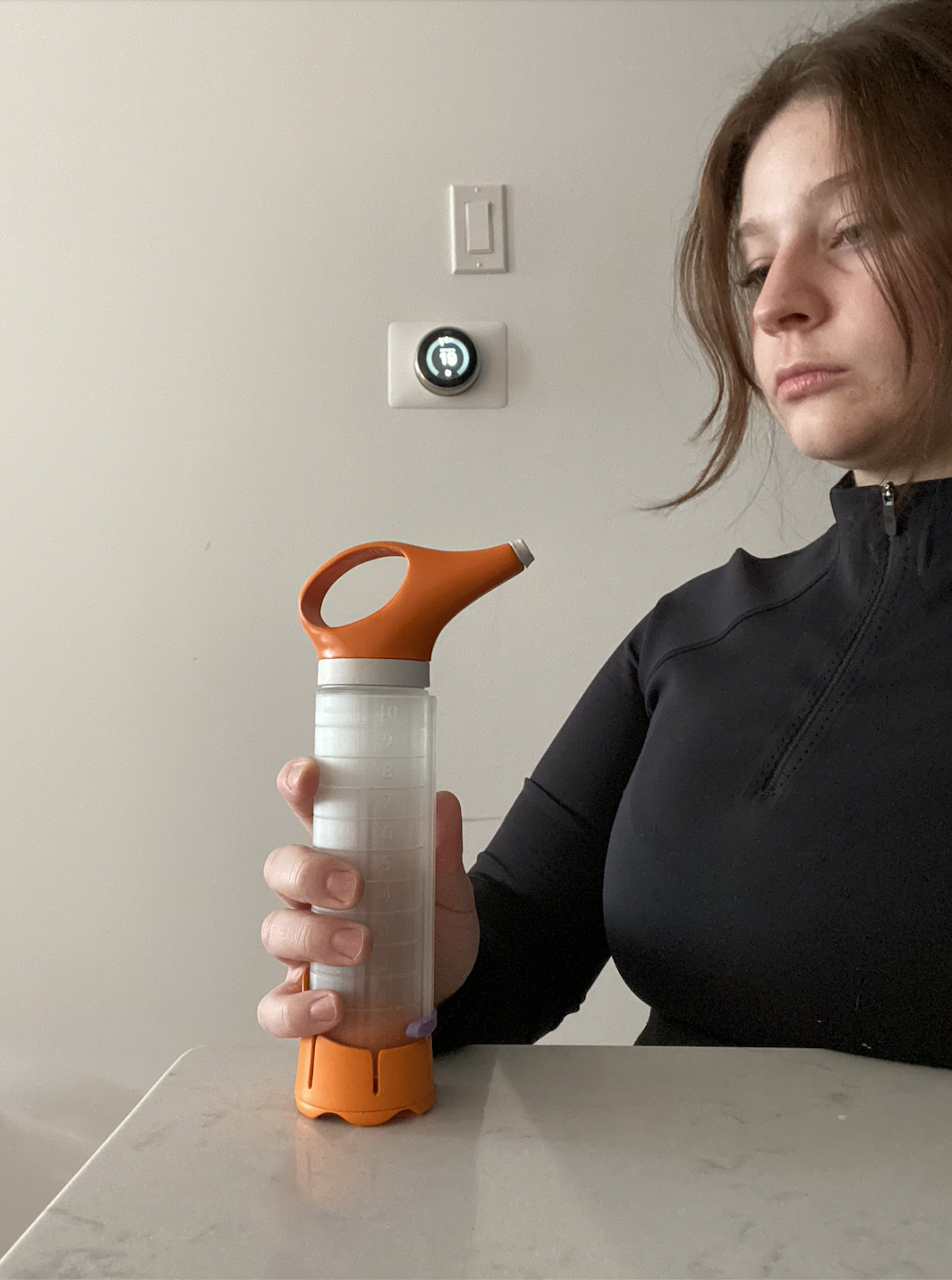
Alternative Way to Push Base
If for any reason, the user is only using one hand, the base can be pushed up on any surface- like a tabletop or even their thigh.
Why?
An overwhelming majority of healthcare workers and respiratory therapists believe that incentive spirometry is:
Essential to patient care
Improves pulmonary function
Improves inspiratory capacity
Helps to prevent and reverse atelectasis (lung collapse) and hospital bourne pneumonia after surgery
Existing options are not designed to be user-friendly, and children are intimidated by the medical aesthetic
Existing Incentive Spirometers
Who?
People recovering from:
Respiratory surgery
Cardiac surgery
Pneumonia, asthma, COPD, or other respiratory illnesses
Patients who spent a lot of time lying in bed
Users wanting to improve lung function
Users trying to clear mucus from the lungs (Life & Healthcare, n.d.).
How?
Use changes based on Doctor/Healthcare provider instruction
Generally:
10 breaths/hour, every hour while conscious in the ICU
Often continues when moved out of ICU &/or still on bed rest
When and Where?
Spirometer is given to patients in pre-op appointments and taught how to use it, in preparation for post-op
Given in hospitals, long-term care homes, and other medical practices
Used anywhere
Internal Mechanics During Use
Upon inhale, inhale valve rises, and piston moves up
When user stops inhaling, inhale valve closes (falls back down)
Piston moves very slowly downwards due to negative pressure built up in the chamber
User pushes up on the base (with a hand or against a surface), which manually pushes the inhale valve up
Piston drops quickly, allowing user to take their next breath without waiting
Changing Resistance with Base Rotation
Most difficult (smallest holes), Moderately difficult (medium holes), and Easy (largest holes).
To change the resistance in the device, simply twist the base. The Cutout at the back of the base will reveal one of three different sized circles, indicating level of resistance.
Sides of the springs hit the tabs on the resistance ring
When the base is twisted, the springs push the resistance ring, revealing different resistance options
3 Different Circle Sizes - 3 Different Resistance Settings
Base Being Twisted in Between 2 Resistance Settings


Image: Parts Disassembled for Cleaning
Images of Final Physical Product
To ensure a comfortable grip for anyone assisting another user, the design ensures multiple different ways of holding the handle
This helps reduce the chances of aggravating carpal tunnel syndrome (nurses are at high risk)
99th percentile woman and man, and children’s measurements were analyzed and tested to ensure the product is comfortable for everyone
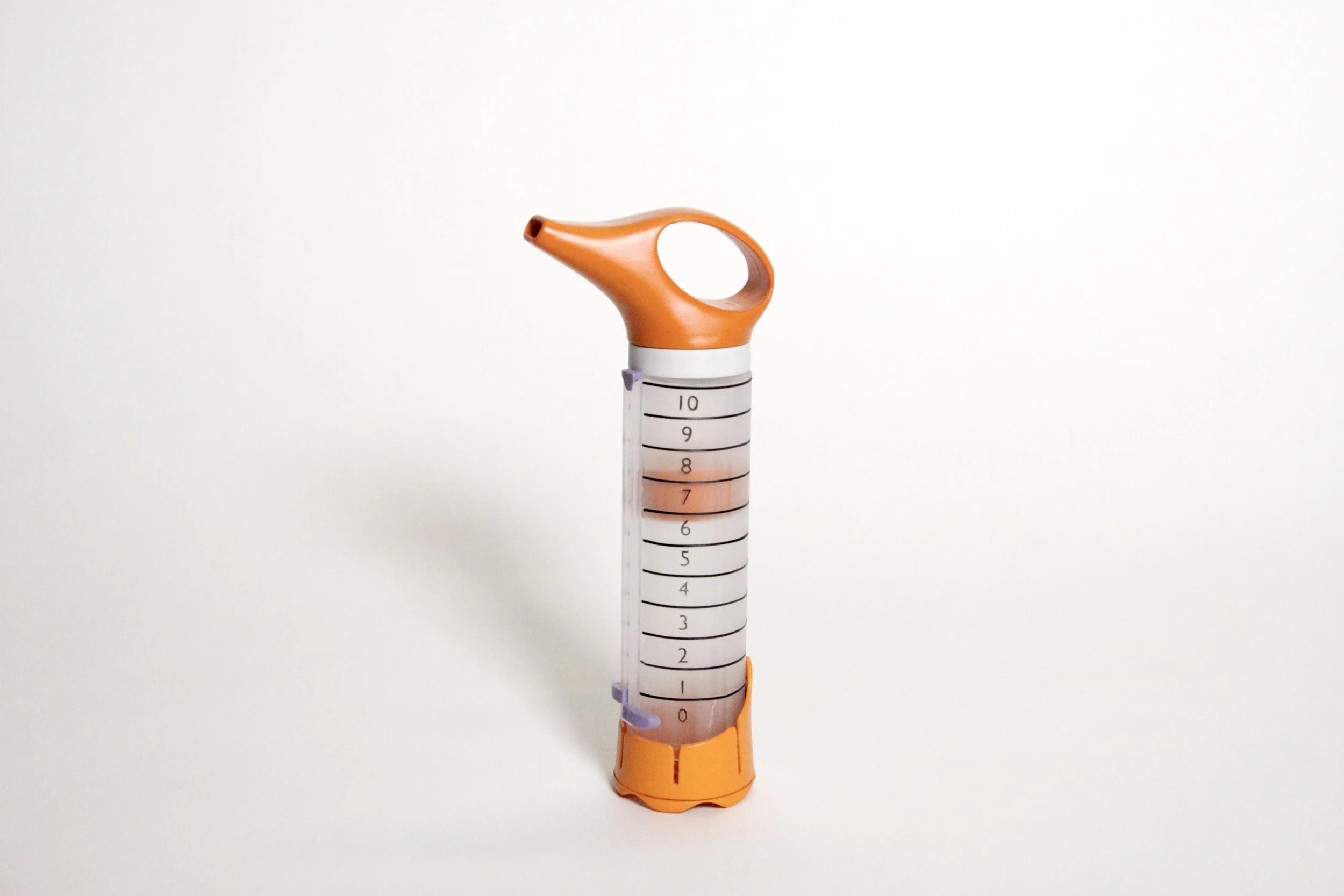
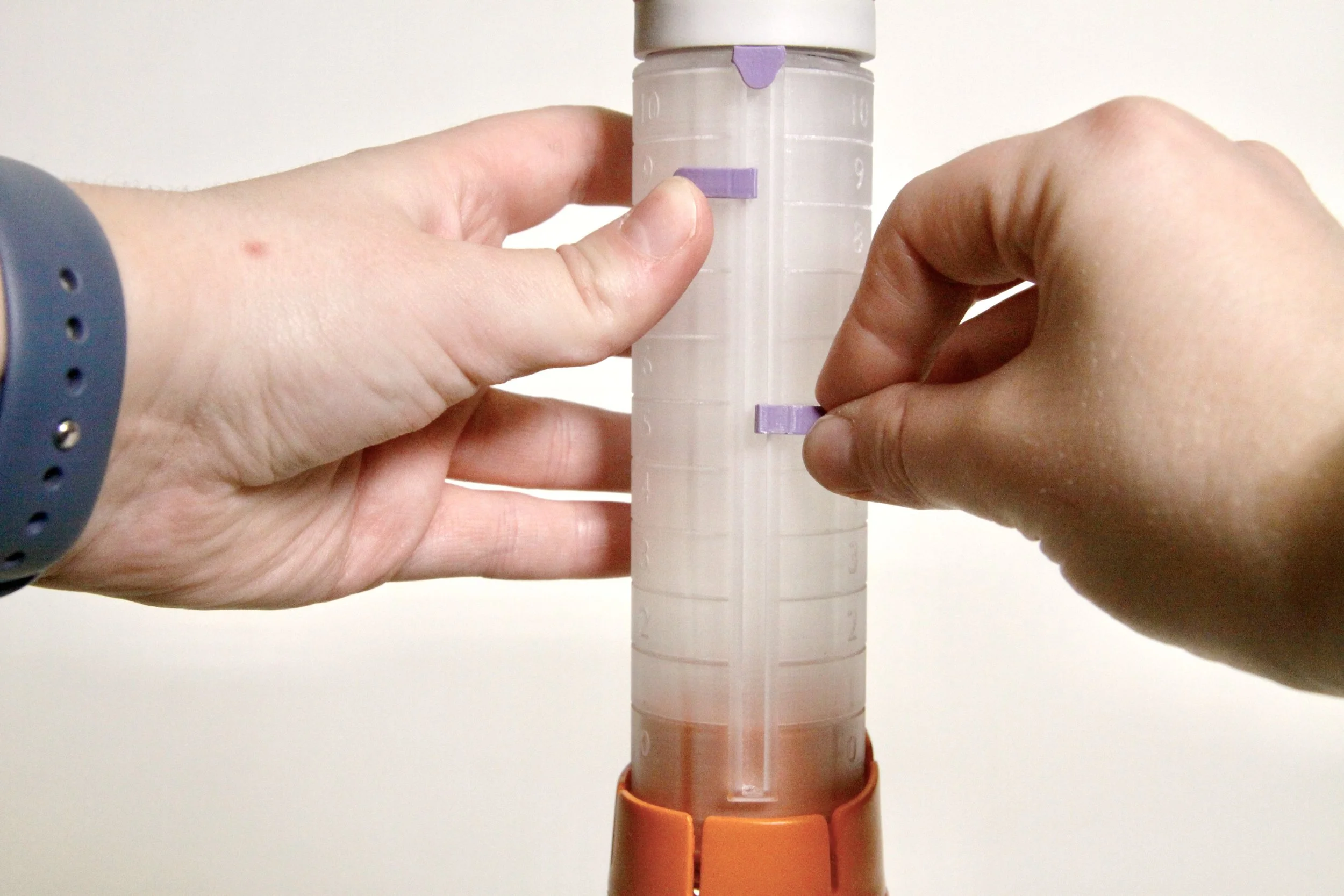
Moving Indicators

Hand holding 1 - to assist another user
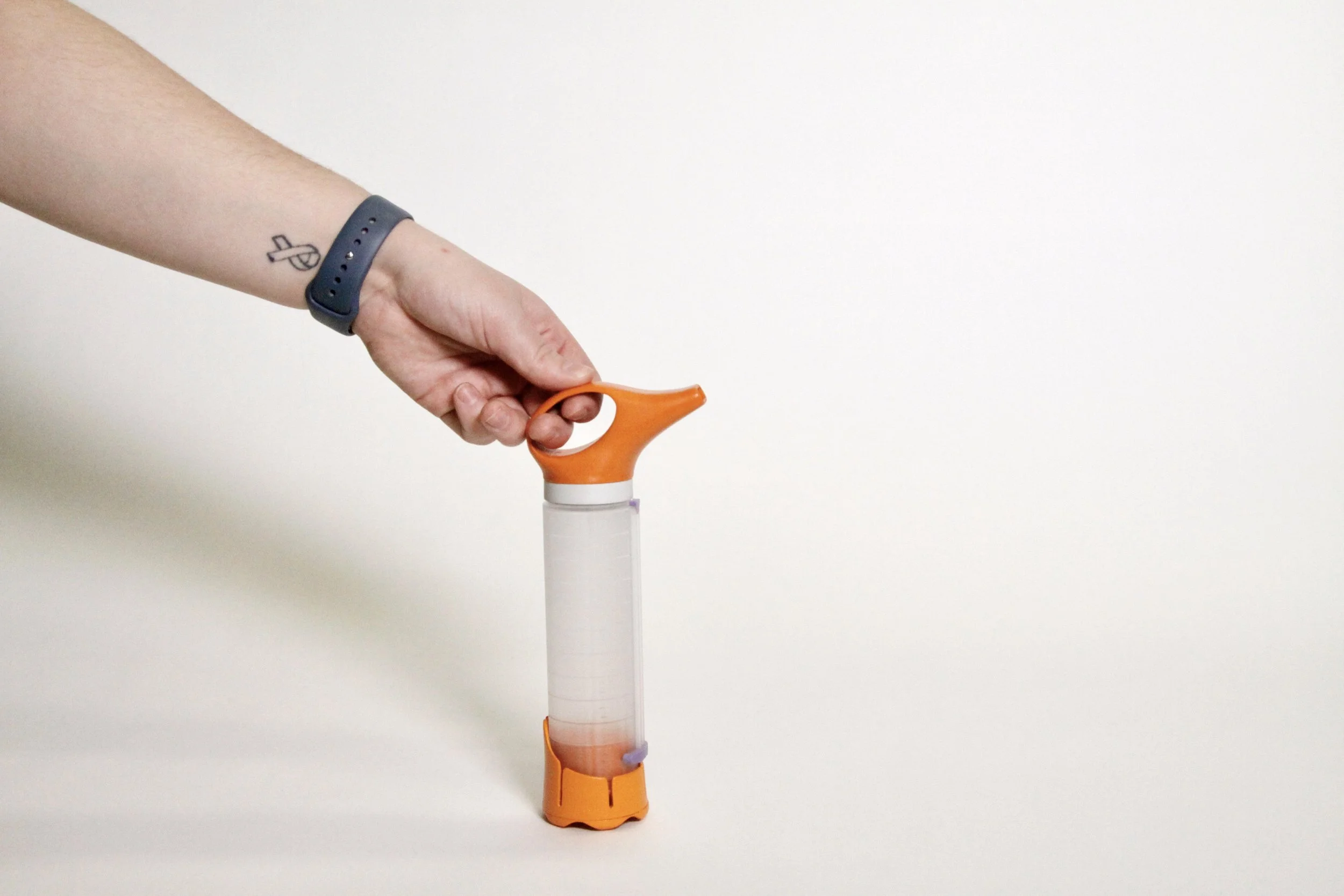
Hand holding 2 - to assist another user
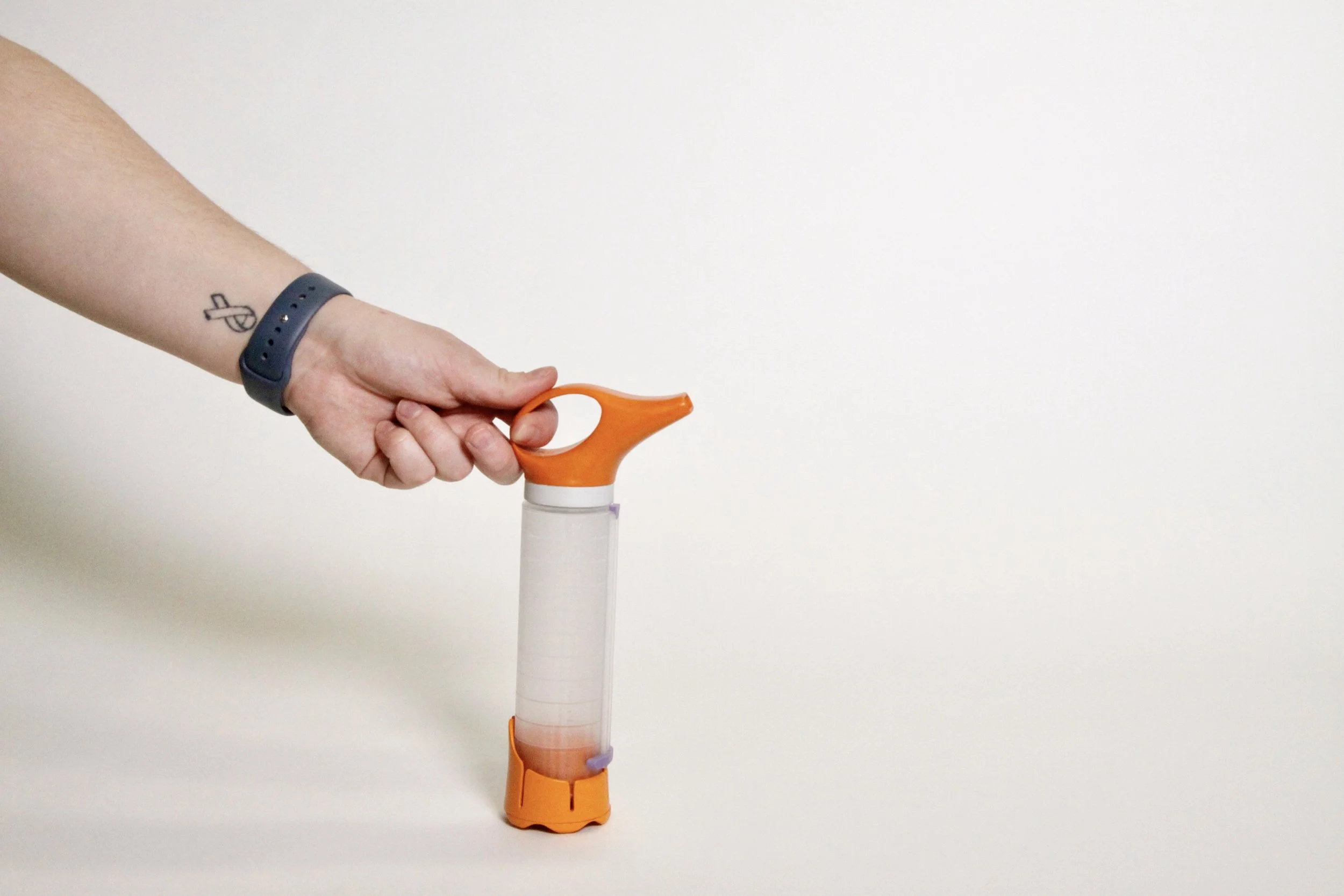
Hand holding 3- to assist another user
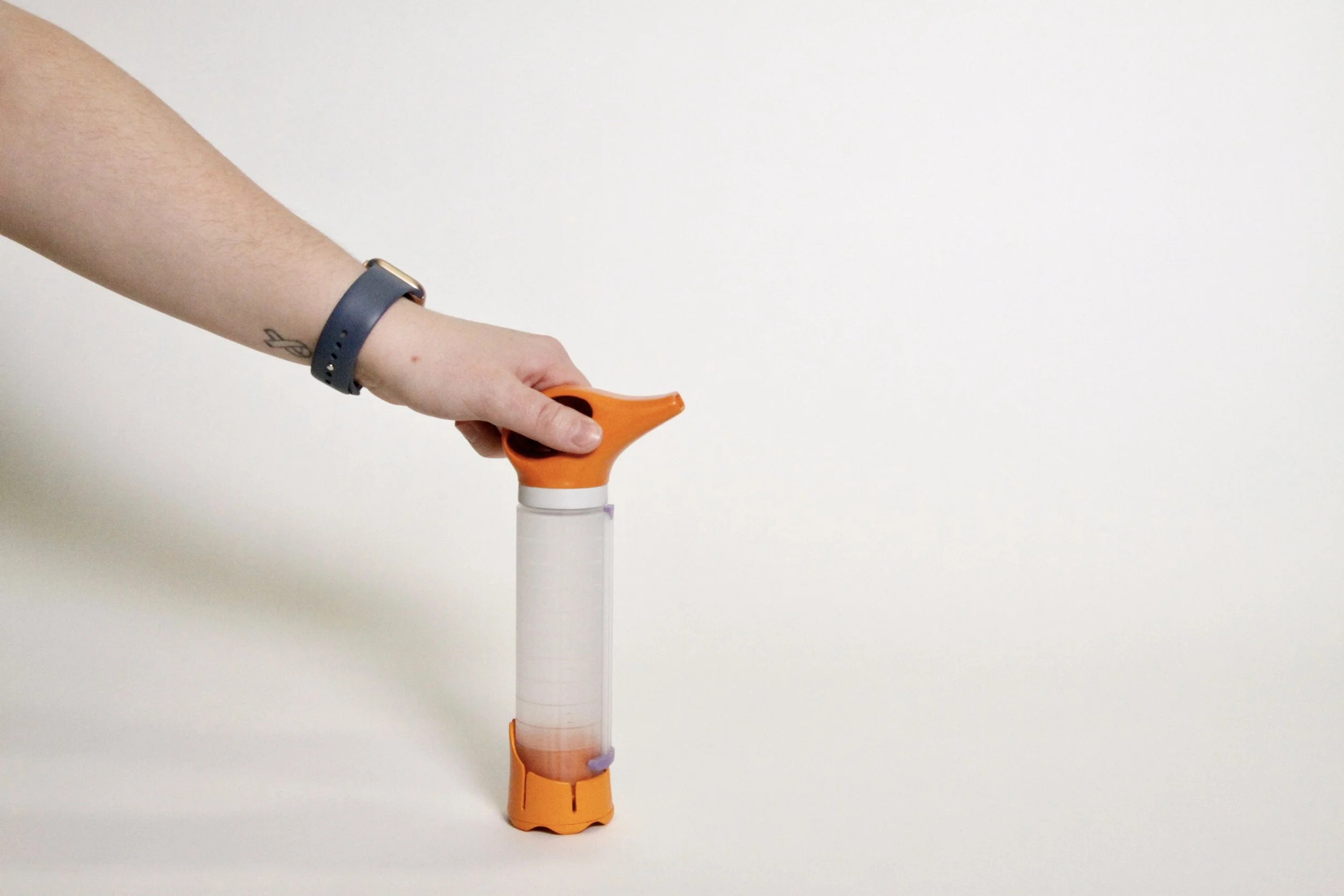
Hand holding 4- to assist another user






